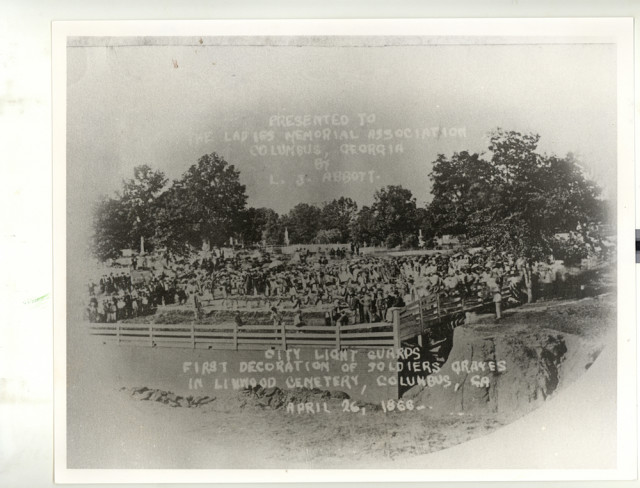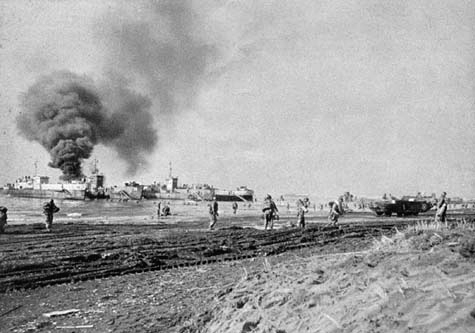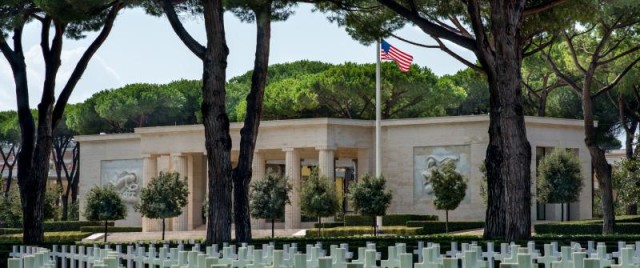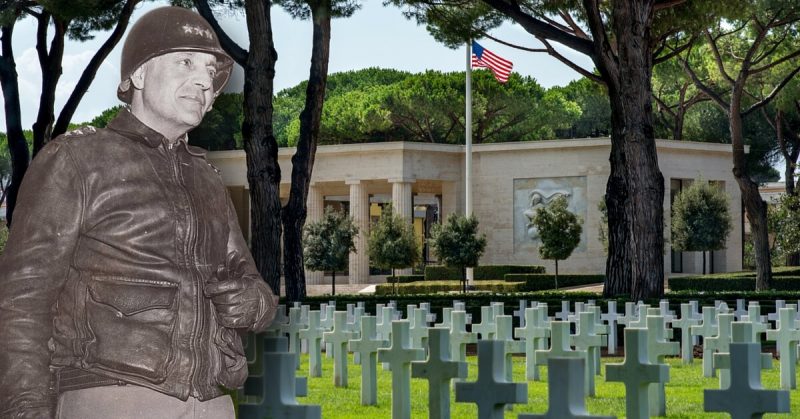When asked to give a Memorial Day speech in 1945, General Lucian Truscott who had just spent the past 3 years retaking Europe from Nazi Germany reluctantly agreed. Not one to pursue the glory of the camera or headline of a Newspaper, Truscott preferred to let his competence on the battlefield speak for itself. After all, there was no short supply of Generals to take up the mantle as premier media diva.
Truscott who would fight the war relatively unknown to many quickly proved himself as one of the most reliable Generals of the entire conflict. First seeing combat as an observer on the famed Dieppe Raid, Truscott would rise through the ranks as he chased the enemy out of North Africa, through Italy and on into the heart of Germany.
However, it would be his Memorial Day speech at the Rome-Sicily Cemetery in 1945 that would set him apart as an orator as much as a General. The words were neither fancy nor long, but the manner in which he delivered this speech have become the most genuine remembrance of Memorial Day one could imagine.
Memorial Day Origins
Memorial Day originated in the aftermath of the American Civil War and its history is can often be as confusing as its modern interpretation. Placing flowers on the graves of the fallen had long been a tradition before the Civil War, but with over 600,000 dead the notion of decorating the graves of the fallen become much more culturally significant in both the North and South.
Multiple cities lay claim to being the site for the original Memorial Day that cover ground from as far South as Charleston, SC and as far north as Waterloo, NY. There is even a story that the first true Memorial Day occurred when freed slaves decorated the graves of fallen Union Soldiers in South Carolina.

And while you can inject yourself into the debate over who created Memorial Day if you like, it is more worth noting that after the war that had killed so many Americans honoring the fallen took on a heightened significance. All of the various Memorial Day events were then referred to as Decoration Day noting the need to place flowers on the graves of the fallen. By 1868, Decoration Day ceremonies were being held in 27 States and over 180 cemeteries. By 1869 the number of cemeteries participating had doubled.
Appropriately enough, the date of May 30th was chosen for Decoration Day as it was determined that was the date in which flowers would be most-ready to bloom. After all, what’s a Decoration Day without the appropriate flowers. By 1882, the name Memorial Day had begun to be used to describe the holiday and became much more prevalent by World War 2. However, it would be a 1967 law that cemented the name Memorial Day and also moved it from May 30th to the last Monday in May.
Moving the date would prove controversial as it was designed to create a 3-day weekend and is thought by many to cheapen the holiday. Until his death in 2012, Hawaii Senator and WW2 Medal of Honor Recipient Daniel Inouye proposed a resolution every year to move Memorial Day back to the original date. And while celebrations of Memorial Day can vary wildly, it is General Truscott’s words that still strike at the heart of every man and woman to every wear the uniform.
Addressing the Fallen
The Rome-Sicily cemetery would be the final resting place for thousands of Truscott’s men. Having fought the vicious campaign up the Italian Peninsula, General Truscott would always hold the hallowed ground in honor as he saw first-hand the cost it took to reclaim it. The podium from which he was to speak was situated with the crowd of dignitaries, journalist, and military brass to the front with the graves of his fallen men behind him.
As he stepped on stage he looked out on the crown eager to hear his words and then did something absolutely remarkable. General Truscott turned his back on the crowd and began to address directly the graves of his fallen men.

With the stunned crowd to his back, General Truscott began to apologize to his fallen men. Saying, “… everyone tells leaders it is not their fault that men get killed in war, but that every leader knows in his heart that is not altogether true.” He went to tell his men that if any of his men were present here through a mistake of his own he asked that they would forgive him, but recognized he was “asking a hell of a lot under the circumstances.”
He wouldn’t stand to listen to older men speak that death on the battlefield was glorious saying “he didn’t see much glory in getting killed in your late teens or early 20s.” He promised that if indeed encountered such living men he would “straighten them out” on behalf of his fallen soldiers.
And while there is no recording of Truscott’s words, famed WW2 cartoonist Bill Mauldin was present to write down the words. Mauldin would describe it as the most moving gesture he ever saw.
Memorialize the Fallen
In modern times, there is often as much confusion about Memorial Day as there is about its history. In part because of the date change, many have trouble separating the day from any other 3-day weekend.
Often, living Veterans receive thanks and well-wishes much to their frustration as they above all recognize this day is not marked for the living.
Some Veterans will graciously accept it and then grizzle under their breath, while some will take the opportunity to bluntly correct those who make such a mistake.

One can only imagine General Truscott would have been in the latter camp. The man who didn’t spare any Memorial Day words to the living, but instead gifted them to his fallen understands the true nature of Memorial Day.
For living Veterans, Memorial Day is a somber event but equally a call to live life. The fallen in combat have purchased the opportunity to live an abundant for their surviving comrades and most would consider living life to the fullest as the most appropriate way to honor the fallen.
General Truscott’s speech remains as one the most fitting tributes to fallen soldiers from a man who knew better than most the true cost of war.
